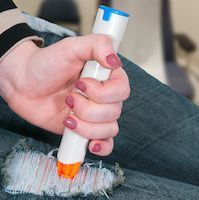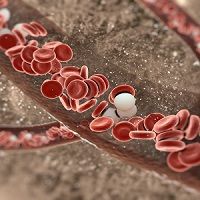The 10 Best Health Stories from January 2017
The MD Magazine editors rounded up the 10 best stories from January—did you read them all?

Between an insurance company merger block, mysterious cases of short-term memory loss in Massachusetts, and a Cleveland Clinic doctor in hot water, this year started off with a bang! MD Magazine highlighted these and other can’t-miss stories from January 2017.
Don’t forget to stay up-to-date by connecting with MD Magazine on Facebook, Twitter, Instagram, and LinkedIn!

Medical marijuana is a divisive topic. Some physicians willingly write prescriptions while others roll their eyes at the data that support its analgesic properties.
Not surprisingly, when it comes to legal marijuana access, not all states are playing on the same field.
Colorado and Washington made headlines when they became the first states to enact laws for recreational marijuana use in 2012. But Colorado was the first to take action by permitting retail shops. They began opening in early 2014. Since then, six more states and the District of Columbia (DC) have passed recreational laws, with most recent—California, Massachusetts, and Nevada—stemming from voters approving ballot questions in the 2016 election. Voters in Arizona rejected and Maine voters approved recreational use initiatives.
>>> Continue reading this story here

People at risk of life-threatening allergic reactions can now turn to the drug store chain CVS for a cheaper alternative of Mylan’s MYL EpiPen — the currently leading but expensive treatment for the fatal attacks.
The generic epinephrine auto-injector Adrenaclick (Impax Laboraties, Inc.) — approved by the FDA in 2003 – now costs $109.99 at CVS for a twin-pack, a fraction of the $649.99 cost for EpiPen.
>>> Continue reading this story here

With the Super Bowl LI arriving in just a matter of days, the US Centers for Disease Control and Prevention (CDC) released a report detailing just how much damage the sport can do.
Although heat exhaustion and internal injuries also cause football deaths, the CDC’s report focused solely on fatalities caused by injury to the brain or spine. The researchers found that between 2005 and 2014, 24 high school players and four college football players were killed in such fashion while participating in football events, whether practices, scrimmages, or games.
>>> Continue reading this story here

The proposed merger of insurers Aetna and Humana has been blocked on antitrust grounds.
US District Court Judge John D. Bates today said the $37 billion proposal would “Substantially lessen competition in the sale of individual Medicare Advantage plans in 364 counties identified in the complaint and in the sale of individual commercial insurance on the public exchanges in three counties in Florida identified in the complaint.”
>>> Continue reading this story here

One physician is in hot water after saying he believes that vaccines are being overused and can be harmful.
Daniel Neides, MD, medical director and chief operating officer of the Cleveland Clinic Wellness Institute, writes a monthly post on the Cleveland Clinic’s blog, typically addressing lifestyle topics. But the doctor is receiving backlash from both officials and the public for his latest contribution that went live on January 6.
>>> Continue reading this story here

Raiding the medicine cabinet for heartburn drugs like Prilosec and Nexium might alleviate acid reflux, but could raise the risk of severe stomach infections.
Recently published study findings in the British Journal of Clinical Pharmacology weren’t the first to suggest using acid suppressors long-term could trigger Clostridium difficile (C. difficile) and Campylobacter bacteria — two bugs that cause abdominal pain, diarrhea, and more serious conditions. The US Food and Drug Administration (FDA) had reported a safety announcement in 2012 stating the potential causal relationship between using stomach acid drugs called proton pump inhibitors (PPIs) and increased incidences of C. difficile-associated diarrhea (CDAD).
>>> Continue reading this story here

Emergency intubation of cardiac arrest patients is a standard part of cardiopulmonary resuscitation.
A new study questions whether such efforts have a proven benefit when these cardiac events happen in a hospital.
Writing in the Journal of the American Medical Association, Lars Anderson, MD, MPH, PhD, of the Research Center for Emergency Medicine in Aarhus, Denmark, and colleagues compared results in patients who were intubated within 15 minutes and a comparable group of patients who were not.
>>> Continue reading this story here

Even macrophages—an altered white blood cell that becomes an important part of the immune system when an infection is detected—aren’t safe from the human immunodeficiency virus (HIV).
Researchers first discovered that HIV can infiltrate macrophages in the 1980s, but the topic didn’t come to the forefront until a few years ago. In a new study, a team from the University College London (UCL) found that although macrophages have a protein that shields them, the virus is able to make it past the defense.
>>> Continue reading this story here

A new Australian study finds that children born closer to the cutoff date for a given school class are prescribed attention deficit/hyperactivity disorder (ADHD) more often than their months-older peers.
Examining de-identified data from over 300,000 children in Western Australia, they split the vast cohort into two groups, one of children aged 6-10 (born between July 2003 and June 2008) and another of children aged 11-15 (born July 1998 to June 2003). Nearly 2% (5,937 students) overall received some form of ADHD medication, with boys three times more likely to be prescribed than girls.
>>> Continue reading this story here

Short-term memory loss in young people could be another consequence of the opioid abuse epidemic plaguing the United States.
The US Centers for Disease Control and Prevention (CDC) on January 26 published a report from health officials in Massachusetts on a mysterious cluster of patients who developed sudden amnesia involving acute and completely reduced blood flow to the brains’ hippocampi. There were 14 such cases from 2012 to 2016.